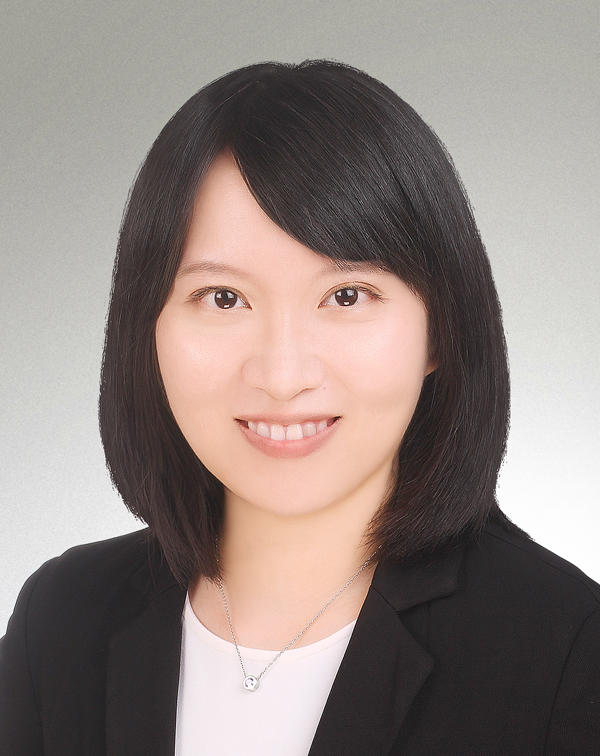September 2025
Series Articles of the Regenerative Medicine Dual Legislation (8) – "Regulations for Regenerative Medicine Techniques to Determine Tissue and Human Cell Donor Suitability" and "Fee-charging Standards for the Review of Regenerative Medicine Applications and Advertisement Publication" Announced
The Ministry of Health and Welfare (“MOHW”) in Taiwan announced two draft subordinate regulations related to the Regenerative Medicine Act in July 2025: the “Regulations for Regenerative Medicine Techniques to Determine Tissue and Human Cell Donor Suitability (“Suitability Regulations”)” and the “Fee-charging Standards for the Review of Regenerative Medicine Applications and Advertisement Publication (“Fee-charging Standards”)”, further specifying operational details in the regenerative medicine field.
I. Draft Suitability Regulations (Public comment period until September 22, 2025)
The draft of the Suitability Regulations, issued under the authority of Article 18, Paragraph 3 of the Regenerative Medicine Act, clearly defines the qualification requirements, screening and testing items for tissue or cell donors, and establishes a management mechanism and standards:
1. Eligibility Assessment Requirements:
Cell-handling medical institutions and cell banks must establish standard operating procedures for cells and appoint qualified physicians with experience in regenerative medicine to perform donor screening, testing, and eligibility assessment. Donors with specified diseases or conditions listed in the draft, except in emergencies or for close relatives, must not be deemed eligible (Articles 3–5 of the Suitability Regulations).
2. Mechanism for Newborns and Autologous Use:
For tissues or cells sourced from newborns under one month old, donation is only allowed if it is clearly beneficial for treating a specific population and cannot be substituted with other donors, and testing must include the newborn’s mother. If maternal specimens cannot be obtained, the donor cannot be considered eligible. Cells intended solely for autologous use are exempt from eligibility assessment (Articles 6–7 of the Suitability Regulations).
3. Sample Collection Period and Report Retention:
Samples must be collected concurrently with or within seven days of tissue/cell acquisition. Upon completion of the eligibility assessment, the cell-handling or storage institution must issue a report containing donor information, institution name, screening and test results, and the assessment conclusion, and retain the report for at least 30 years from the date of issuance (Articles 8–10 of the Suitability Regulations).
II. Draft Fee-Charging Standards (Public comment period until September 22, 2025)
Under Article 12 of the Regenerative Medicine Act, medical institutions performing regenerative medical technologies or using MOHW-designated regenerative products must apply for approval and complete registration with the MOHW and local authorities in advance. Advertising or recruitment for regenerative medicine also requires prior review.
To reflect administrative costs and implement a “user pays” principle, the MOHW announced the draft Fee-charging Standards, specifying the fees for medical institutions applying to perform regenerative medical technologies or use designated regenerative products; and medical institutions or cell bank operators applying to publish regenerative medicine or recruitment advertisements (Articles 2–4 of the Fee-charging Standards).
I. Draft Suitability Regulations (Public comment period until September 22, 2025)
The draft of the Suitability Regulations, issued under the authority of Article 18, Paragraph 3 of the Regenerative Medicine Act, clearly defines the qualification requirements, screening and testing items for tissue or cell donors, and establishes a management mechanism and standards:
1. Eligibility Assessment Requirements:
Cell-handling medical institutions and cell banks must establish standard operating procedures for cells and appoint qualified physicians with experience in regenerative medicine to perform donor screening, testing, and eligibility assessment. Donors with specified diseases or conditions listed in the draft, except in emergencies or for close relatives, must not be deemed eligible (Articles 3–5 of the Suitability Regulations).
2. Mechanism for Newborns and Autologous Use:
For tissues or cells sourced from newborns under one month old, donation is only allowed if it is clearly beneficial for treating a specific population and cannot be substituted with other donors, and testing must include the newborn’s mother. If maternal specimens cannot be obtained, the donor cannot be considered eligible. Cells intended solely for autologous use are exempt from eligibility assessment (Articles 6–7 of the Suitability Regulations).
3. Sample Collection Period and Report Retention:
Samples must be collected concurrently with or within seven days of tissue/cell acquisition. Upon completion of the eligibility assessment, the cell-handling or storage institution must issue a report containing donor information, institution name, screening and test results, and the assessment conclusion, and retain the report for at least 30 years from the date of issuance (Articles 8–10 of the Suitability Regulations).
II. Draft Fee-Charging Standards (Public comment period until September 22, 2025)
Under Article 12 of the Regenerative Medicine Act, medical institutions performing regenerative medical technologies or using MOHW-designated regenerative products must apply for approval and complete registration with the MOHW and local authorities in advance. Advertising or recruitment for regenerative medicine also requires prior review.
To reflect administrative costs and implement a “user pays” principle, the MOHW announced the draft Fee-charging Standards, specifying the fees for medical institutions applying to perform regenerative medical technologies or use designated regenerative products; and medical institutions or cell bank operators applying to publish regenerative medicine or recruitment advertisements (Articles 2–4 of the Fee-charging Standards).
Related Articles
Series Articles of the Regenerative Medicine Dual Legislation (1) – Taiwan's Legislative Yuan Passed the Regenerative Medicine Dual Legislation Series Articles of the Regenerative Medicine Dual Legislation (2) – Analysis of the Conditional Approval System for Regenerative Medicine Product Series Articles of the Regenerative Medicine Dual Legislation (3) – The Impact of the Regenerative Medicine Dual Acts on the Therapy and Drug Development of Rare Diseases Series Articles of the Regenerative Medicine Dual Legislation (4) – Draft Announcement of Certain Subsidiary Regulations Under the Regenerative Medicinal Products Act (Taiwan) Series Articles of the Regenerative Medicine Dual Legislation (5) – Draft Announcement of Certain Subsidiary Regulations Under the Regenerative Medicine Act (Taiwan) Series Articles of the Regenerative Medicine Dual Legislation (6) –
Clarifying Donor Eligibility and Fee Standards: Supporting Regulations Under the Regenerative Medicine Products Act Released (Taiwan) Series Articles of the Regenerative Medicine Dual Legislation (7) –
Draft Regulations on Cell Processing and Cell Bank Licensing Announced: Regenerative Medicine Act Taking Shape (Taiwan) Series Articles of the Regenerative Medicine Dual Legislation (9) –
The Final Step of Taiwan’s Regenerative Medicinal Products Act: Draft Announcement of the Regulations for Registration of Regenerative Medicinal Products





